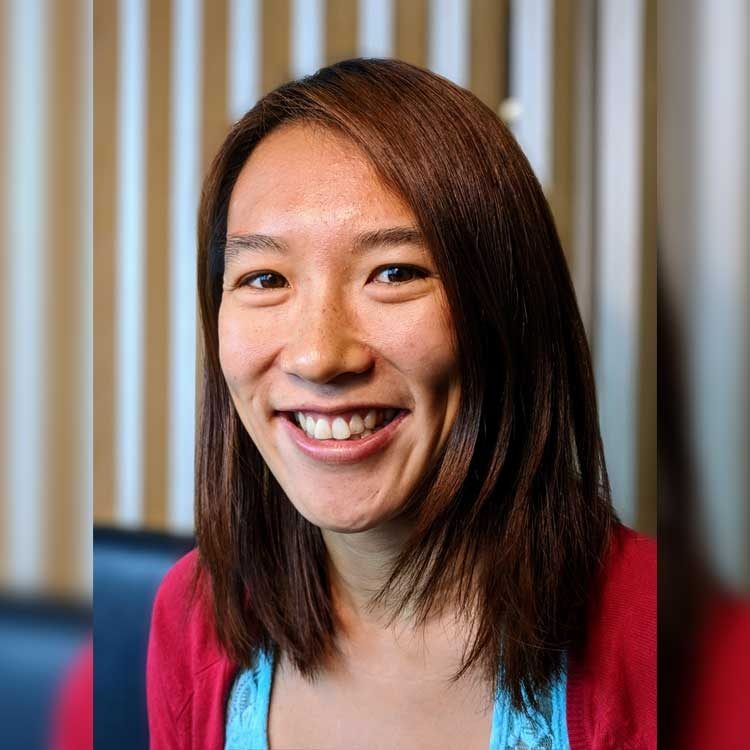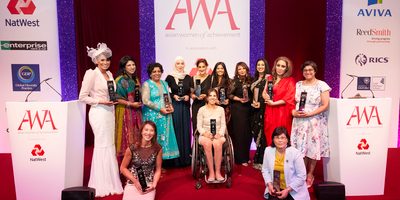
Dr Jenny Tran: woman of achievement
Dr Jenny Tran, a medical doctor with a stellar CV and a passion for improving population health, is conducting research into how people experience multiple health conditions. A Rhodes scholar named one of Forbes’ ‘30 under 30’ social entrepreneurs, she is a rowing full blue for Oxford University and has been shortlisted for an Asian Women of Achievement award in 2018.
How long have you been working at The George Institute?
I started at The George Institute in July 2015 with my masters’ degree in Global Health Sciences placement. I loved it, and decided to continue as a doctoral candidate, on the Rhodes and now the Clarendon Scholarship.
What is your professional background?
I completed medical school at The University of Melbourne with a Bachelor of Medical Sciences (BMedSci) combined with a Bachelor of Medicine and Surgery (MBBS). I worked as a clinician in Melbourne before being awarded the Rhodes Scholarship and making the move to Oxford to start my MSc in Global Health Sciences and subsequent DPhil.
I have also been involved in a range of community projects aiming to improve chronic disease prevention and management. I was part of the founding team of REACH (now Strive), Australia’s first, student-run multidisciplinary health clinic, and served as Director in 2012. We worked with relatively disadvantaged populations in Melbourne, where chronic diseases, such as diabetes, heart disease and depression, were highly prevalent.
I became interested in how these chronic diseases could be prevented by targeting more upstream causes, such as diet, physical activity and education. This led to the start of Community Health Advancement and Student Engagement (CHASE), a not-for-profit health mentoring program that empowers youths to take action and improve the health of their own communities, demonstrated in our introductory video. It was awarded the Minster for Health volunteers’ innovation award in 2017.
Moving even further upstream, I was a founding director of Libromat, a social enterprise that provides parental training in early childhood education. We were rewarded for our work by being named one of Forbes’ ‘30-under-30’ social entrepreneurs, and reached the final of the international round of the Hult Prize.
What attracted you to working at The George Institute?
I was attracted to the high-impact and innovative research that The George Institute is well-known for. My area of research is multi-morbidity, so I examine many different chronic conditions; about 60 of them altogether. My work cuts across several different specialist areas, and unfortunately sometimes falls through the gaps between specialisms. The George Institute is the kind of place where research into big areas such as multi-morbidity is encouraged and supported!
It’s also a diverse, vibrant team who are great to work with. I’ve had the opportunity to meet and work with brilliant clinicians, statisticians and engineers, as well as computer and data scientists.
What are you currently working on?
My DPhil (doctorate) focuses on multi-morbidity, which is defined as the presence of two or more conditions in the same individual. I’m currently working with a large database of linked, primary-care records in the UK, called the Clinical Practice Research Datalink (CPRD). I have access to over 7.5 million patient records across more than 25 years of follow-up, with a broad range of information available such as disease diagnoses, clinical test results and prescriptions.
I’m currently investigating how multi-morbidity affects a patient’s blood pressure management. Is blood pressure management worse because they have lots of other conditions competing for attention, or is their blood pressure management better because they have more contact with healthcare providers, and hence more opportunities to improve their blood pressure control? The literature published so far doesn’t provide a clear answer.
What is a recent highlight?
I’ve recently had a paper accepted into a special edition of the journal PLOS Medicine on “Multi-morbidity and Cardiovascular Disease,” which I’m very excited about. We found that the prevalence of multi-morbidity in patients with cardiovascular disease in the UK has increased sharply over time, even when population ageing is accounted for.
I’ve also been nominated for the Asian Women of Achievement awards, which was a big surprise, but I’m thrilled!
What difference will this make to healthcare and why?
The area of multi-morbidity in research is still very young, and not much is known about its burden, risk factors, prognosis and management. Yet, we know that at least 50% of patients over 50 years old in most contexts have multi-morbidity, and this will only increase in the future.
Together with experts in chronic conditions, I’ve been part of the team at the Academy of Medical Sciences’ multi-morbidity working group preparing a report on multi-morbidity research and future directions. We’ve spent hours discussing the definition of multi-morbidity – not even the basics of research in this area have been clear in the past! The more we know, the better equipped we are to deal with the rising burden of multiple chronic conditions.
Why do you enjoy working at The George Institute?
Every day I work on challenging research questions with a great group of people.
To explain to people what I do, I say….
I try to tease apart and understand multi-morbidity: the phenomemon of multiple chronic health conditions occurring simultaneously in the same person. If you imagine multi-morbidity as a cake, I deconstruct the cake into its raw ingredients (the chronic conditions that make it up) and try to work out how it all came together.
To unwind at the end of the day I….
Row, cycle, run, swim…anything to be active and outdoors. I rowed for the Oxford Blues team for two years and am finding it hard to step down from training 11 times per week…
My first job was….
Sales assistant in the ladies’ shoes department at Myer, the Australian department store.
My biggest achievement so far….
Setting up CHASE and seeing what an impact it’s had for the high school students who take part! The CHASE team have done such an incredible job at helping it grow.


